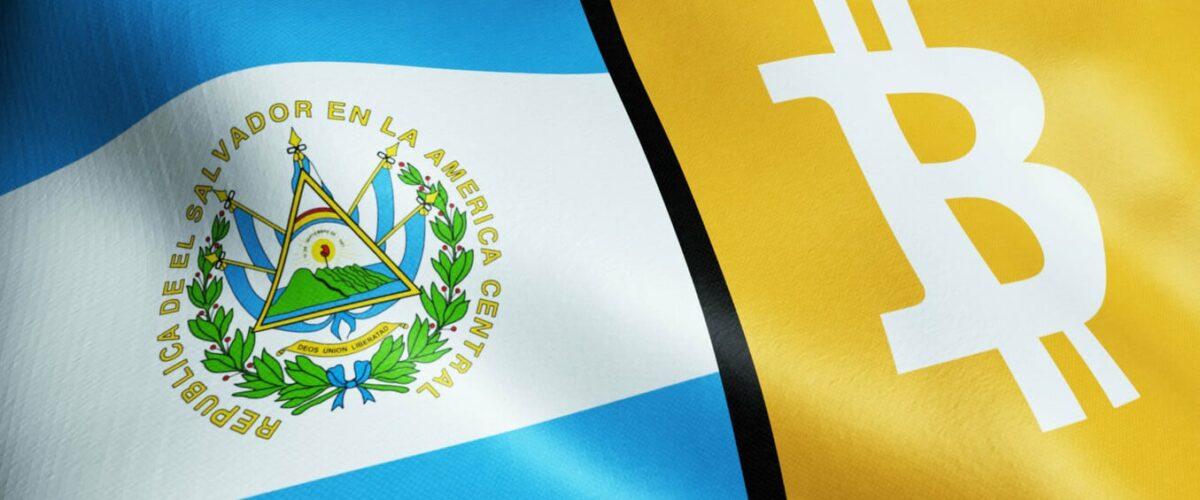
As most crypto investors are aware, Bitcoin and other cryptocurrencies are known for being an alternative to fiat currencies, and until recently were not considered legal tender in any country. This can be confusing for those who don’t know much about the crypto space, sometimes creating the impression that cryptocurrencies are not legal – but this is not, of course, the case.
Not being accepted as ‘legal tender’ simply means that crypto coins are not classed as the official currency of any particular country. They are not backed by a national government or central bank or controlled by the financial authorities or regulatory bodies of any particular country. This was the case for all cryptocurrencies until recently, and was, in the opinion of many investors, one of the positive things about them.
In September 2021, however, El Salvador officially adopted Bitcoin as legal tender and fully recognized it as a form of currency within the country. This means that in El Salvador, Bitcoin is now considered an official currency and is an accepted means of paying for a range of goods and services.
The reasons behind the decision are at least partially economic. The El Salvador government made the decision with the hope that by being the first country to fully adopt Bitcoin and make it legal tender, the country’s economy would benefit. President Nayib Bukele said at the time of making the announcement that he believed that the move would encourage crypto investors to spend more of their cryptocurrency in El Salvador.
When it comes to the issue of fully legalizing Bitcoin, El Salvador is perhaps an unlikely candidate. It is a tiny country with a small economy, being the smallest country in the whole of Central America, but its move has certainly made an impression on some of the larger countries in the region, as well as other countries around the world.
While there was much excitement about El Salvador adopting Bitcoin, the experiment has not gone as well as was hoped. Bitcoin adoption across the nation has been slow to say the least, and it hasn’t helped that the price of Bitcoin has fallen by around 55% since President Bukele announced his plan. The government’s crypto holdings have therefore been cut in half, and the expected influx of crypto investors keen to spend their virtual currency in El Salvador has not really materialized.
Crucially, the country is now in the position of needing an influx of cash to meet its very expensive debt payments, which run at an interest rate of around 5% a year, and now amount to more than $1bn. This seems to be a goal that is out of reach right now, as the country’s economic growth has declined, while its deficit remains high, and its debt-to-GDP ratio is set to hit almost 87%. Economists are uncertain about whether El Salvador will be able to repay its debt, and many are looking on the attempt to adopt Bitcoin as a failed experiment.
The El Salvador Bitcoin experiment has now caused a loss, on paper, of around $50m for President Bukele’s government, and the entire situation, when all associated costs are included, has set the government back around $374m. While these may seem like big numbers, they are still only a small percentage of the country’s national budget. There has, however, been a knock-on effect, with many international lenders reluctant to lend more to a country that is now seen to be somewhat at the mercy of the price movements of Bitcoin, which is, and always has been, an extremely volatile and unpredictable asset.
It’s fair to say the Bitcoin experiment in El Salvador has not been a raging success, but it’s not over yet. The president has a lot riding on it and still seems willing to continue trying to make it work, and Bitcoin’s volatility could, of course, start to work for the country, just as easily as it worked against it, with some experts predicting another surge in the value of the cryptocurrency.
In fully embracing Bitcoin, El Salvador has taken a bold step and given itself some problems, one of which is that Bitcoin, in spite of its name, is not a coin or even a banknote. It is a digital key, and technically it doesn’t physically exist in the real world. We may all be familiar with the gold coin that is universally recognized as the symbol for Bitcoin, but it is just that: a symbol.
Therefore, it is necessary to make all payments in Bitcoin via an electronic transaction. That in itself is not a problem. After all, we pay by electronic transaction every time we pay by credit or debit card, but the technology to do so has been around for quite some time. There is a Bitcoin processing system in place in El Salvador, and it has a point-of-sale device similar to a credit card processing machine. However, visitors to the country have reported that these devices are not always available or in full working order, making it impossible to pay with Bitcoin in some venues.
In spite of the El Salvador results currently being less than ideal, not everyone has been put off the idea of making Bitcoin an official national currency. In April 2022, the Central African Republic became the second country to adopt Bitcoin as legal tender, and other countries have also expressed an interest in doing so. Countries looking at the possibility include Paraguay, Panama and Mexico.
However, in spite of the popularity of Bitcoin and other cryptocurrencies, it seems unlikely that major players on the financial world stage, such as the US or the UK, will consider making Bitcoin legal tender anytime soon. While many major businesses in such countries are willing to accept crypto transactions, the established banking systems aren’t looking like they will be ready to embrace such a major shake-up in the foreseeable future.

If you’re new to crypto investing, or even if you’ve been doing it for a while, you may…

Whether you’re a fresh enthusiast or an experienced trader, you’ll know that the crypto industry hardly makes the…

While inflation is never far from the thoughts of many economists, government policymakers, and individuals concerned with keeping…

Comments